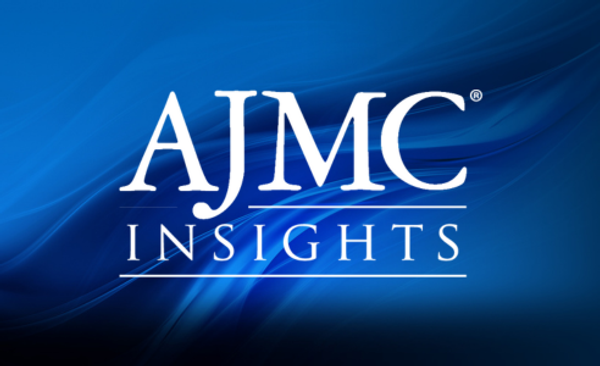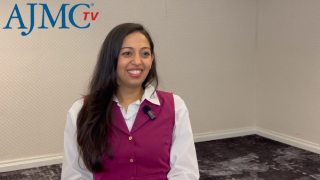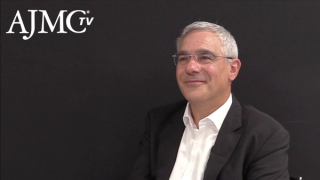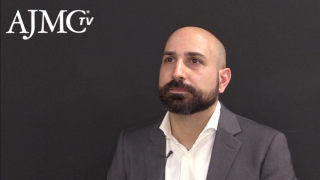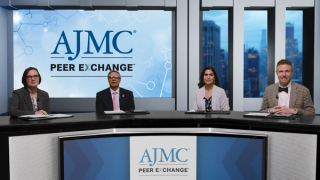
Multiple Myeloma
Latest News
Latest Videos
CME Content
More News
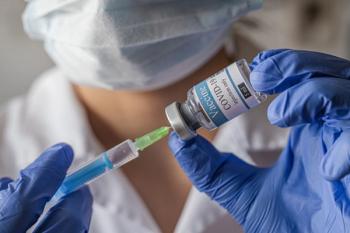
Patients with multiple myeloma (MM) can experience diminished immune responses during prolonged treatment; however, mRNA vaccines could bolster immunity in this vulnerable population.
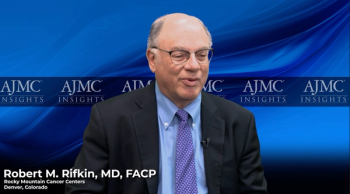
Robert M. Rifkin, MD, FACP, discusses how the MagnetisMM-3 update at the 66th American Society of Hematology Annual Meeting and Exposition sheds light on elranatamab’s role in relapsed/refractory multiple myeloma while panelists discuss how emerging data on bispecific antibodies and combination strategies could shape treatment timing and improve outcomes, especially in heavily pretreated patients.
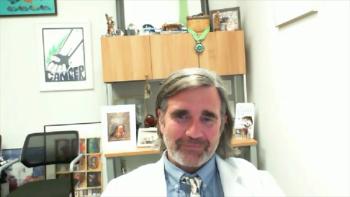
In our ongoing conversation with James Cancer Hospital’s Don M. Benson, MD, PhD, he explains his philosophy of always striving to deliver personalized patient care.
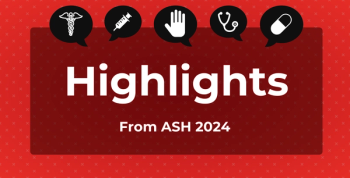
The 66th American Society of Hematology (ASH) Annual Meeting & Exposition took place December 7-10, 2024, in San Diego, California; the 2025 meeting is currently scheduled to take place in Orlando, Florida, December 6-9.
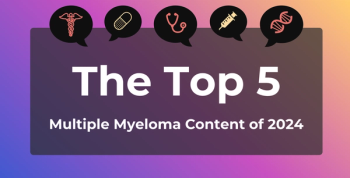
Through interviews and articles infused with expert insight, progress against this cancer that develops in the bone marrow was showcased.

Robert M. Rifkin, MD, FACP, discusses how findings from real-world studies on teclistamab and talquetamab presented at the 66th American Society of Hematology Annual Meeting and Exposition reinforce their efficacy and impact on patient outcomes in relapsed/refractory multiple myeloma while panelists discuss how clinicians should prioritize factors such as patient characteristics and treatment history when selecting the most appropriate bispecific therapy for these patients.
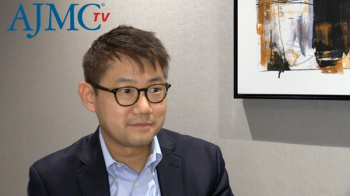
Hans Lee, MD, explores how minimal residual disease (MRD) testing guides treatment decisions for multiple myeloma and highlights the value of patient preferences.

In part 3 of our interview with hematologist-oncologist Don M. Benson, MD, PhD, The Ohio State University Comprehensive Cancer Center, he addresses the unpredictable nature of multiple myeloma outcomes and their multifactorial nature.
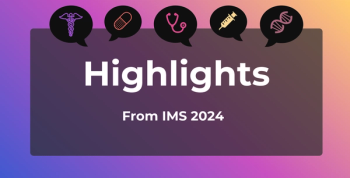
The expert knowledge presented at this year’s International Myeloma Society (IMS) annual meeting focused on minimal residual disease testing and status, defining and treating high-risk disease, CEPHEUS trial findings, and an investigational off-the-shelf chimeric antigen receptor T-cell therapy.

Hans Lee, MD, MD Anderson Cancer Center, talks about recent advancements in multiple myeloma treatment pathways.
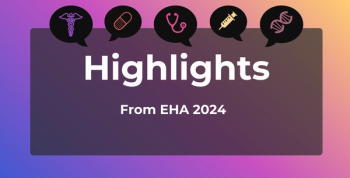
Presentations at the European Hematology Association (EHA) 2024 Congress were encouraging for their data on innovations within the hematology/oncology space that are reshaping treatment outcomes.
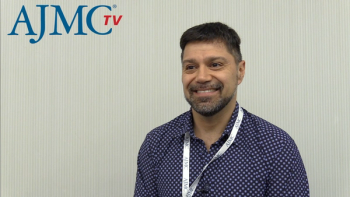
Matias Sanchez, MD, assistant professor in the Department of Medicine at the University of Illinois Chicago, discussed recent advancements in multiple myeloma treatment, including the potential of cell therapies and bispecific antibodies.

Matias Sanchez, MD, assistant professor in the Department of Medicine, Division of Hematology and Oncology, University of Illinois Chicago, emphasizes the importance of patient education and caregiver involvement in managing complex therapies and advises oncologists to confidently integrate advanced treatments.

In the most recent update to the National Comprehensive Cancer Network (NCCN) guidelines for treating patients who have multiple myeloma, a quadruplet regimen became the preferred first-line treatment option for transplant-eligible and -ineligible patients.

In this second part of our discussion with Don M. Benson, MD, PhD, from our recent Institute for Value-Based Medicine® event in Cleveland, Ohio, he explains how his ultimate goal for his patients is for them to live as long and as well as possible.

Coverage from the IVBM Regional event in Denver, Colorado.
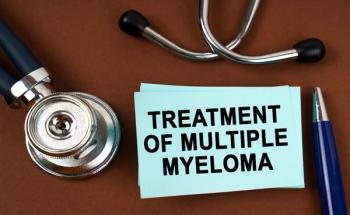
The key secondary end point of overall survival (OS) was met in the DREAMM-7 trial of belantamab mafodotin (Blenrep; GSK) for the treatment of patients with relapsed/refractory multiple myeloma (R/R MM).
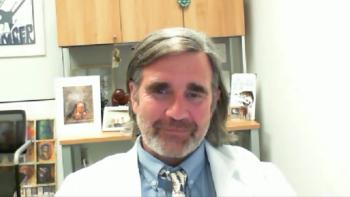
Don M. Benson, MD, PhD, has cared for patients at James Cancer Hospital in Ohio for 22 years, where he and his team see approximately 10,000 patient visits each year.
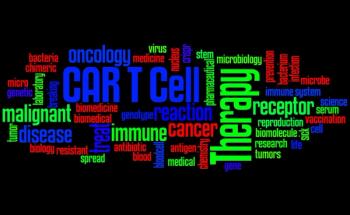
Multiple myeloma is the second most common hematologic malignancy, but there is a treatment gap for patients with disease progression following standard-of-care therapies that include immunomodulatory agents, proteasome inhibitors, and anti-CD38 antibodies.
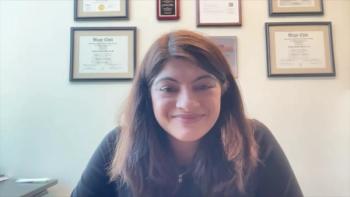
In part 2 of our interview with Surbhi Sidana, MD, MBBS, American Society of Hematology and Stanford University, she delves into one of the hottest topics in the hematologic malignancy space today: minimal residual disease (MRD) status.
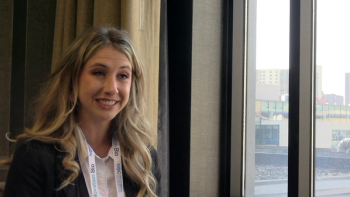
Allowing patients to stay in their homes to receive bispecific antibodies can make the whole cancer journey easier, explained Courtney VanHouzen, PharmD, of Cowell Family Cancer Center, Munson Healthcare.
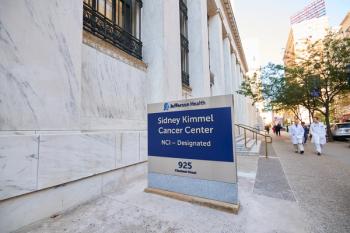
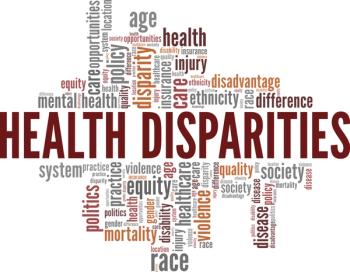
Outcomes of interest in this study were time from diagnosis to initial prescription fill for an oral multiple myeloma (MM) medication and time from initial diagnosis to receipt of any treatment for MM.

On September 20, the FDA approved isatuximab plus bortezomib, lenalidomide, and dexamethasone in the first line for patients who have multiple myeloma and are ineligible for transplant.
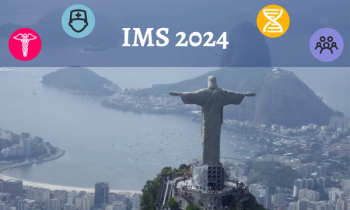
Speakers at the 2024 International Myeloma Society (IMS) conference share the updates from the myeloma space that they were most excited about this year.




